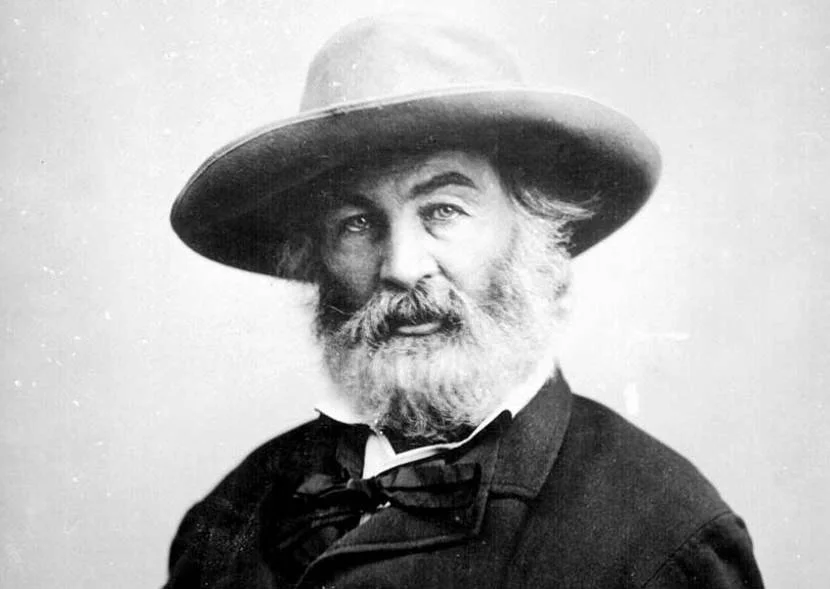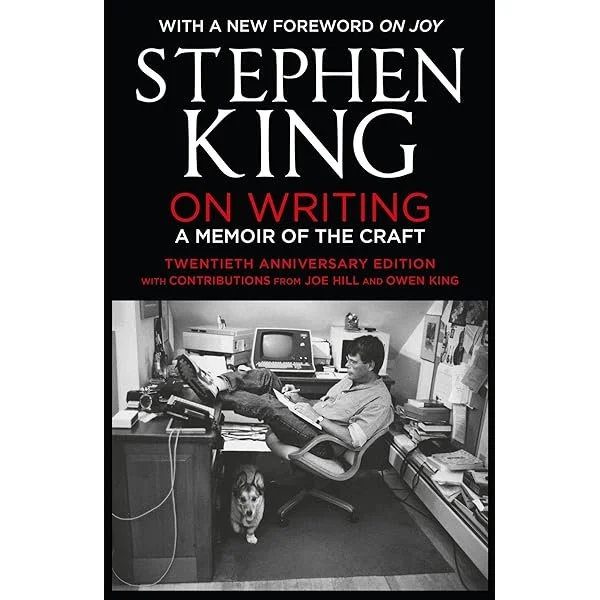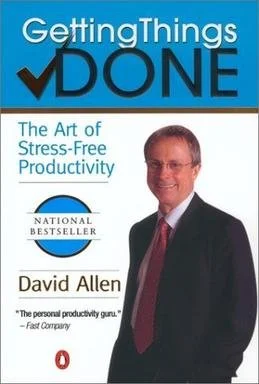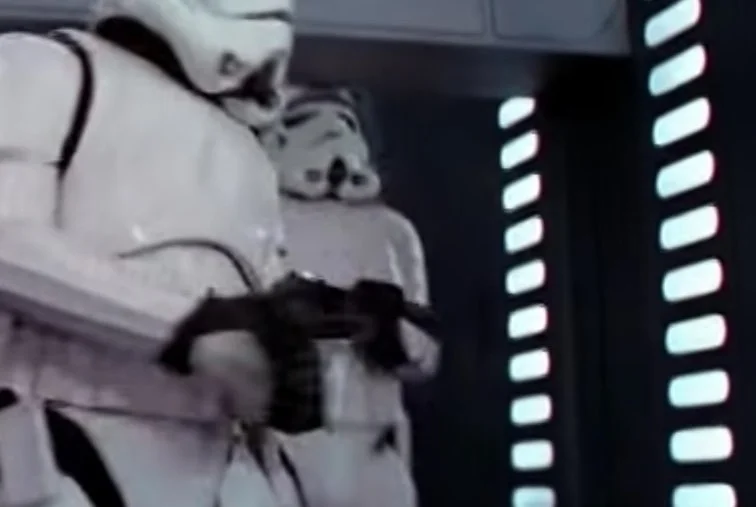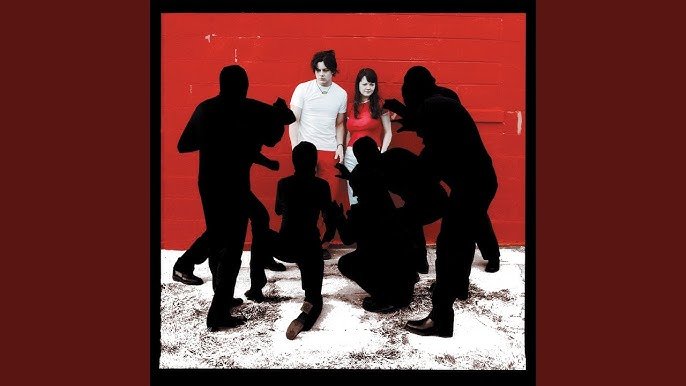I Don’t Write Papers. I Finish Them.
The Art of Finishing
I don’t write papers. I finish them.
That’s my scientific philosophy, a catchphrase, if you like. It does sound sorta badass, like “I’m here to kick ass and chew bubblegum, and I’m all out of bubblegum” from They Live. That’s not really my intent, however. It’s not so much about kicking ass as it’s meant to be a kick in the ass.
“I’m here to chew bubblegum and kick ass.” They Live, John Carpenter, 1988
It’s not meant as something I’d say to other people, but more something I’d say to myself in the mirror in the morning as I brush my teeth:
Don’t write papers. Finish them.
It might not be obvious that these are separate things. Trust me, I’ve learned the hard way that they are. The difference between writing papers and finishing them is the difference between being busy, and being productive. It’s possible to put weeks, months, or even years of effort into a paper and never finish it. In which case, what’s the point?
If a tree falls in the forest and nobody publishes on it, does it make a sound?
If you’re a scientist, the answer is no. The life of a scientist can be monastic at times, but science is a social process. You have to put your work out there, let it stand the criticisms of colleagues and the test of time, or not. Until you do, no matter how novel and important your data and your work are, no matter how brilliant your insights, it won’t matter.
In Doctor Strangelove, an insane American general launches a preemptive nuclear strike on the Soviet Union. Unknown to him, or anyone, the Soviets have built a deterrent device, a giant computer-controlled nuclear bomb that will detonate automatically in the event of a nuclear attack, and destroy the whole world. The Soviets, however failed to mention this to the Americans. The eponymous Dr. Strangelove rails at the Russians, “Of course… the whole point of a Doomsday Machine is lost, if you KEEP IT A SECRET!!!”
The same is true of science. If you don’t tell anyone about your observations or your ideas, they have no impact. You might as well never have done the research at all. The point of the scientific research is lost, to paraphrase Strangelove, if you keep it a secret.
It might seem insane that people would put months or years into a project and simply not publish, but I see this all the time. I see people constantly working on new papers. New dinosaurs, maybe a whole fauna of new dinosaurs. They’re constantly telling you about the amazing new project that’s almost done and about to be submitted in a few weeks, and it’s been almost done, and a few weeks from submission for five years. Much like fusion power has been 20 years in the future for the past 50 years, the paper is about three to six weeks away from submission, forever.
And I know this because I’ve done it myself. I’ve fallen into the trap of constantly working, constantly writing, never finishing. Here’s how to get out, and get more done while doing less work.
1. Stop Talking, and Start Doing
First, stop bragging about things you haven’t done yet.
There’s a saying, it ain’t bragging if you’ve done it. Now, this sounds like something a sports figure would say, maybe a famous baseball player or Muhammed Ali, but it’s actually from the American poet Walt Whitman, which feels oddly appropriate (as a poet, Whitman was familiar with the Life of the Mind, and even he is implying that you need to do things. It’s OK to feel pride in the work you’ve finished. The reverse of this is that you shouldn’t take pride in things you haven’t actually done).
“If you done it, it ain’t bragging.” — Walt Whitman
Yes, it feels good to talk about all these amazing projects you’ve got going on, projects that will one day turn into finished papers. It can be exciting to talk about the paper you’re planning to submit, and the string of papers that come after that. It feels rewarding.
That, ironically, is the problem.
That’s why it’s so important not to talk about work you haven’t done yet.
Every time you talk about your work, your brain gets a little hit of dopamine, a sense of accomplishment from imagining the work completed. Every time you brag about the things you’re going to do in front of friends and colleagues, you get a false sense of achievement that is, to your brain, indistinguishable from the sense of accomplishment that comes from actually doing the work.
It is also far easier to achieve than the sense of real accomplishment that requires showing up, day after day, and grinding until the work is done. By tricking your brain into feeling good by talking about the work, and rewarding yourself for not working, you’re literally conditioning yourself not to work.
Psychologists have studied this phenomenon. Counterintuitively, they found talking about your goals makes you less likely to work hard. People who were given a task and told to announce their targets to everyone did less than the people who were given a task and told to say nothing.
The people that talked about their goals ended up doing less work.
This tracks pretty well with what I see in the world.
The people who are constantly talking about the things they’re working on are the ones who rarely get anything done. The more they talk about a project, the more they insist it’s so close to being submitted, the less likely it is that paper ever sees the light of day. If the work is so close to being done, why tell me about it- as opposed to just doing it? In the fifteen minutes you just spent telling me about the project, you could have done something small but meaningful to move the paper forward.
Meanwhile that guy who never talks about his work drops some major paper or even a string of papers that you had no idea were even in the works. They’re quiet, they show up, they get stuff done, and let their work speak for itself. There are talkers and there are doers. The first step to being a doer is to stop being a talker.
2. Focus on outputs, not input
The second step is to stop focusing on input, and just focus on output.
Work hours are a terrible way to track your progress, because it encourages you to focus on an input (time) rather than an output (words written, illustrations drafted, data gathered, analyses run).
Imagine you’re donating to a charity and they constantly brag about how much money they spend every year, while not actually doing anything meaningful to advance their cause. Every year the Save the Leopards Foundation throws a huge celebrity fundraiser dinner in Hollywood, and they brag about how last year they spent $100 million saving leopards.
But, alas, there are now fewer leopards than ever. In fact, leopards are on the brink of extinction! So they need you to donate more money for more leopard-saving activities. You might begin to think that this charity was at best rather inefficient with the use of your donations, or perhaps something of a grift— if not an outright fraud. And no matter how much you really care about the poor leopards, you’d be right to think this.
And yet this is exactly the way we scam ourselves when we measure our performance in terms of input — number of hours in the lab, days since a vacation, dollars of grant funding acquired— as opposed to output- steps taken towards getting papers published. We put in 20 hours on that paper last week, but we’re farther away than ever from publishing, so it’s time to put in more hours.
When I worked on fishing boats in Alaska, we worked around 14 hours a day but there weren’t any real work hours. We aimed to grind out 60 tubs of longline gear a day— cutting bait for 60 tubs, baiting and coiling 60 tubs, setting sixty tubs, hauling 60 tubs, then cleaning the halibut we caught.
This approach rewards efficiency: if you get your tubs baited quickly there’s time to go put on a movie, eat ice cream, and get a good night’s sleep. And if you got 60 tubs a day set out and hauled, you chipped away at the season’s quota until all your fish were caught, and you could go home.
This doesn’t just apply to physical labor, but mental work.
Stephen King has a quota when he writes— two thousand words a day. Some days it takes longer. Some days it takes less time, he can knock it off in an hour or two. But on average he works two or three hours a day and yet manages, at 2,000 words a day, five or six days a week, to knock out the draft of a 100,000 word novel in about 9 or 10 weeks— less than three months. That’s because he’s focused on outputs.
The beauty of the quota is that it rewards efficiency. Get your work done for the day? Take the rest of the day off, watch a movie, hang out with a friend, go for a walk, enjoy life. Whereas with work hours, you might sit there for four hours, your Designated Working Hours, and just stare at the screen. You’ve kept your deal with yourself (you were in front of the laptop for four hours) but you feel guilty, you feel like crap, because nothing got done and you were watching YouTube videos and doomscrolling social media most of the time.
The important thing isn’t how many hours you’re at your desk, but getting something accomplished while there. A good approach is to pick one doable task, some task that moves the paper a step towards conclusion.
Write the abstract
Finish Figure 1.
Do an analysis
line-edit the first draft
—and that’s the day’s target.
And once that abstract is done you can head off to the pub with no guilt.
3. Consistency moves mountains
The third step is to show up consistently.
If you show up every day and just complete one small task on your paper, and do that every day, you’ll eventually finish the paper.
Catching 100,000 pounds of halibut sounds like a lot, and it is a lot. But you show up every day, set out sixty tubs, and do that day after day, and eventually all the fish get caught.
Writing a 100,000 word novel sounds daunting. But if you show up every day and write two thousand words, then in fifty days a novel is written. That consistent productivity is why King was such an incredibly prolific novelist.
It’s been said that 80% of life is just showing up— and it’s true, but “showing up” means not just being physically present, but showing up and doing the job.
That slow-and-steady grind, getting something done every day, day after day, can move mountains. Like the ocean carving away at the seacliffs or the snow and ice wearing down a mountain peak, if you consistently show up it will get done.
4. You need to be able to identify what to do next.
So what is the next step required to move the project forward? When you show up to move the project ahead, what do you actually do?
The book Getting Things Done is excellent in this respect. The key insight is that in modern work, a lot of the hard work isn’t actually executing the tasks, but figuring out what tasks must be executed and in what order. The good thing is that even a very complicated project- like a scientific paper- can be broken down into a series of to-do lists, something like:
• gather data
• run analyses
• generate figures
• write paper
• circulate to coauthors
• submit
The items on a to-do-list might be their own little sub-projects. Figure One might be a whole project in and of itself. If it’s a figure of a fossil, that to-do-list might be something like:
• prepare fossil
• photograph fossil
• process images in Photoshop
• compose plates in Illustrator
• export to TIFF format in resolution specified by journal.
And of course photography can be it’s own day-long project, getting your lights, tripod, camera and specimen set up. It’s projects within projects. It’s projects all the way down.
But any project no matter how complicated- describing a fossil, analyzing a huge dataset, writing a book- can be broken down this way, clarifying what the next step is, into a series of to-do-lists and checklists, then ticking things off those to-do-lists until everything is done.
Sometimes the order of steps matters, sometimes it doesn’t.
If you’re shopping, it doesn’t really matter if you buy tomatoes, meat, parmesan, or pasta first. But if you’re cooking, then obviously you need to chop the tomatoes before you put them in the sauce, and you have cook the noodles before you put the sauce on top. In the same way in science there may or may not be dependencies. It may not matter if you do Figure 1 or Figure 2 first. You do need to do the photography and collect the data for the graphs before you can make the figures, however. Getting things done in the right order is part of the challenge.
Some steps are more vital, more mission-critical than others. Your pasta dinner won’t be ruined if you don’t have parmesan to sprinkle on top, but it will be a failure without the noodles. In the same way, there are things that are nice-to-have and things that are need-to-have, things that can kill a whole project if they don’t get done.
I once got pretty far into a description of a fossil and I’d assumed that the fossil we were studying was going to a museum, and then it turned out the owner didn’t want to part with it— we’d mostly done the paper and we ended up without any idea how to proceed. The paper was never finished.
It’s important to identify these key dependencies— the things the whole project depends on, which can hold up an entire research program— and attempt these things first, or at least have a bulletproof plan to get them done at some point— so your whole project doesn’t fail.
5. Avoid Mission Creep
Another mistake is to keep complicating or changing the plan.
Yes, the plan may need to change. In fact, it will almost certainly have to change if it’s a complex project. But having a plan makes it easier to adapt to problems and opportunities. As Eisenhower said, “plans are useless, but planning is essential.” Eisenhower knew a thing or two about plans— he oversaw Operation Overlord, the amphibious invasion of Europe on D-Day, perhaps the most complicated military operation in history.
Dwight D. Eisenhower, U.S. President and Supreme Allied Commander in Europe
But the key thing is that you need to keep moving forward and to do that you need to keep ticking things off your to-do-list, and not to needlessly add to or change the plan. This is another one of those “busy-but-not-productive” traps people fall into. People keep adding new tasks- the decide to edit things that have already been edited, to revisit decisions made months earlier, to re-run an analysis that’s already been re-run.
I was involved with a project where we did the analysis, then did the analysis again, and then did the analysis a third time, each time getting the same result. This might have been okay if each iteration took a day or two, but we were looking at weeks and months added- almost a year of lost time because the person who wanted to redo the analyses also kept failing to get them done on time.
You may need to add tasks to your to-do-list, but the list should tend to get shorter over time, or the paper never gets done. You must tick things off your to-do list faster than you add them, or it never gets done. Decisions should ideally be made once, and not revisited without good reason, or you find yourself going in circles.
6. Let go of perfectionism.
Perfectionism is the enemy of finished work. Or, as they say, the perfect is the enemy of the good.
Ah, but what if you’re ambitious and want to do work that isn’t merely good, but great? What if you’re an artist and want to do work that’s not just good, but beautiful?
Fine. Perfection is still your enemy.
Because great work always has its imperfections. The original Star Wars is a great movie, but it’s got that scene where the stormtrooper hits his head on the door:
Maybe Lucas could’ve reshot that scene if they’d caught it in production, but that would have taken weeks perhaps, and then there would have been some other scene that needed reworking, and another one after that… and in the process of reshooting, more imperfections would have been added (and in fact he did go back and edit the movie— added a needless scene with Jabba the Hutt, decided Han should shoot first which undermined the entire scoundrel-to-hero arc, and soforth— and it made the movie worse). In the end the movie is kind of better for having this error— most people never notice it at all, so it doesn’t really detract; and if you do know about it, it’s sort of this fun easter egg.
Nothing finished is ever perfect.
No novel, no movie, and no paper. That’s the price of finishing work— putting something into the world means putting something imperfect into the world, since no piece of work is ever perfect.
The illustrations could have been better. The prose could have been tighter. You could have collected more data. You could have done another analysis. To publish, eventually you need to make peace with the fact that any published work contains imperfections, errors (minor ones, mind you— the basic conclusions and evidence and analyses should be sound) and avenues left unexplored, issues unresolved.
Yes, mistakes will be made, because that’s how science progresses— we throw out incorrect hypotheses and incomplete data, and further observation rejects them, and science advances, one rejected hypothesis at a time.
In practice, I find perfectionism— either in myself, or others— is rarely about doing great work.
Endless editing and revision is usually less about having high standards than being afraid to put one’s work out there. It’s a sign of overthinking- in psychology, the term is rumination- going over the same thing over and over rather than deciding. It’s a symptom of anxiety and depression (and it may as much cause depression and anxiety as reflect them). Academics are particularly vulnerable to overthinking, because our job is thinking. But thinking should lead to action (data collected, analyses, papers published). This is the proper function of thinking- it should lead to decisions, which then lead to actions. If thinking just leads to more thinking, to busywork, to endless writing and re-analysis, it becomes overthinking.
So yes, have high standards by all means. Treat your works as works of art. But as Steve Jobs put it, real artists ship. Real artists put their art into the world, imperfect as it is.
And great artists ship a lot. Michelangelo, Van Gogh, Picasso- they didn’t just finish paintings, they were prolific. Shakespeare wrote and put on dozens of plays.
Tolkien wrote hundreds of thousands of words about elves, hobbits and dwarves, enough to fill four books. Bob Dylan put out three of the greatest albums in music history, back-to-back (Bringing it All Back Home, Blonde on Blonde, and Highway 61 Revisited ), in 18 months. So if you aspire to do great work, learn to finish.
But most of our work will never be, and doesn’t need to be a work genius like Shakespeare or Blonde on Blonde or The Lord of the Rings. It just needs to be competent— and done. If you’ve got something truly important it’s probably even less important that it’s beautiful, and more important that it’s done. Nobody ever goes back and criticizes the choice of words in Watson and Crick’s paper on DNA.
The important thing is, they had the structure of DNA and they published it.
7. Remember why you started
“Well, you're in your little room
And you're working on something good
But if it's really good
You're gonna need a bigger room
And when you're in the bigger room
You might not know what to do
You might have to think of how you got started
Sitting in your little room”
— The White Stripes, “Little Room”
Throughout this essay I find myself taking a jaded, critical tone, like a tough coach or a demanding boss. This is the voice of my inner critic, I suppose. And I’m very critical. Maybe too much so. At the same time, I criticize because I care— I would like to see papers done, done well, and yet done in a reasonable amount of time. But sometimes in focusing on output, it’s easy to lose track of why we do this work in the first place.
Science is beautiful. Academia, however, can be a tough slog.
Colleagues criticize or tear your work apart in review, often driven more by spite and jealousy than curiosity or a desire for truth. Academic administrators micromanage and undermine faculty while trying to squeeze more grant money and work out of them. Colleagues form cliques and spread rumors and lies behind people’s backs Mean Girls style. Academia isn’t like high school: It’s far worse, far more vicious, and far less mature.
It's a hard road, and sometimes in the short term you need to tell yourself to just suck it up and deal. Stop making excuses, stop procrastinating. It sucks, but just show up, get the next thing done, and do that every day. At the same time, if you forget why you’re doing it, over the long term that’s a recipe for burnout.
Burnout isn’t so much an issue of workload, as a disconnect between our work and our values— the feeling that what we’re doing doesn’t really matter, and it isn’t aligned with what we truly, deep down, care about. So when we show up every day and try to tick something off the to-do list it’s important to try to remember why you’re doing it. It’s because the work is interesting, and meaningful, and beautiful- and if it’s not, maybe we should be working on something else. Life is too short to work on boring research, and as scientists we’re not paid well enough to do stuff we hate.
For paleontology, I think that meaning lies in the idea that we can peer back into the past and in a way bring back to life creatures that disappeared millions of years ago, and understand something about how the world used to be, and how it gave rise to the world we inhabit. It’s exploring another world, a vanished world, and bringing glimpses of it back. It’s an opportunity to study dinosaurs (and mosasaurs, and pterosaurs, and birds, and snakes, and lizards and mammals). It’s an opportunity to contribute to the body of knowledge, a scientific tradition that began with Greek philosophers over 2,000 years today, and maybe if we’re lucky, discover some fantastic creature, some new insight into how the world works. It’s a chance to discover. And if we’re doing it right, every paper we finish becomes the start of some new project, every answer provokes more questions, on and on.
Conclusions
A scientist isn’t someone who does research. A scientist is someone who puts their science out there in the world. A scientist is someone who finishes papers.
So stop bragging about work you haven’t done yet.
Focus on your outputs, not your inputs.
Show up every day, and get the next thing done.
Have a plan so you know what things you need to do, in what order.
Avoid the temptation to over-complicate or change your plan constantly.
Let go of perfectionism.
And remember why you do it in the first place.


